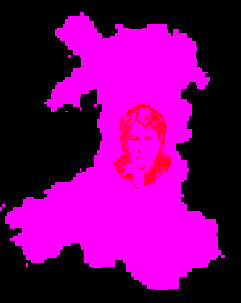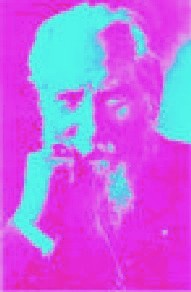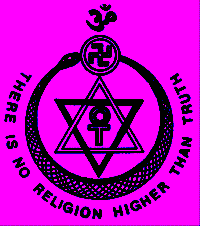Theosophy

The All
Guide to
Getting Started in Theosophy
(And its all
Free Stuff )
People outside

____________________

Reincarnation
From
A
Textbook of Theosophy
By
C
This life of the ego in his own world, which is so
glorious and so fully satisfying for the developed man, plays but a very small
part in the life of the ordinary person, for in his case the ego has not yet
reached a sufficient stage of development to be awake in his causal body. In
obedience to the law of nature he has withdrawn into it, but in doing so he has
lost the sensation of vivid life, and restless desire to feel this once more
pushes him in the direction of another descent into matter.
This is the scheme of evolution appointed for man at
the present stage – that he shall develop by descending into grosser matter,
and then ascend to carry back into himself the result of the experiences so
obtained. His real life, therefore, covers millions of years, and what we are
in the habit of calling a life is only one day of this greater existence.
Indeed, it is in reality only a small part of one day; for a life of seventy
years in the physical world is often succeeded by a period of twenty times that
length spent in higher spheres.
Every one of us has a long line of these physical
lives behind him, and the ordinary man has a fairly long line still in front of
him. Each of such lives is a day at school. The ego puts upon himself his
garment of flesh and goes forth into the school of the physical world to learn
certain lessons. He learns them, or does not learn them, or partially learns
them, as the case may be, during his school day of earth life; then he lays
aside the vesture of the flesh and returns home to his own level for rest and
refreshment. In the morning of each new life he takes up again his lesson at
the point where he left it the night before. Some lessons he may be able to
learn in one day, while others may take him many days.
If he is an apt pupil and learns quickly what is
needed, if he obtains an intelligent grasp of the rules of the school, and
takes the trouble to adapt his conduct to them, his school life is
comparatively short, and when it is over he goes forth fully equipped into the
real life of the higher worlds for which all this is only a preparation. Other
egos are duller boys who do not learn so quickly; some of them do not
understand the rules of the school, and through that ignorance are constantly
breaking them; others are wayward, and even when they see the rules they cannot
at once bring themselves to act in harmony with them. All of these have a
longer school life, and by their own actions they delay their entry upon the
real life of the higher worlds.
For this is a school in which no pupil ever fails;
every one must go on to theend. He has no choice as to that; but the length of
time which he will take in qualifying himself for the higher examinations is
left entirely to his owndiscretion. The wise pupil, seeing that school life is
not a thing in itself, but only a preparation for a more glorious and far wider
life, endeavors to comprehend as fully as possible the rules of his school, and
shapes his life in accordance with them as closely as he can, so that no time
may be lost in the learning of whatever lessons are necessary. He co-operates
intelligently with the Teachers, and sets himself to do the maximum of work
which is possible for him, in order that as soon as he can he may come of age
and enter into his kingdom as a glorified ego.
Theosophy explains to us the laws under which this
school life must be lived, and in that way gives a great advantage to its
students. The first great law is that of evolution. Every man has to become a
perfect man, to unfold to the fullest degree the divine possibilities which lie
latent within him, for that unfoldment is the object of the entire scheme so
far as he is concerned. This law of evolution steadily presses him onward to
higher and higher achievements.
The wise man tries to anticipate its demands – to run
ahead of the necessary curriculum, for in that way he not only avoids all
collision with it, but he obtains the maximum of assistance from its action.
The man who lags behind in the race of life finds its steady pressure
constantly constraining him – a pressure which, if resisted, rapidly becomes
painful. Thus the laggard on the path of evolution has always the sense of
being hunted and driven by fate, while the man who intelligently co-operates is
left perfectly free to choose the direction in which he shall move, so long as
it is onward and upward.
The second great law under which this evolution is
taking place is the law of cause and effect. There can be no effect without its
cause, and every cause must produce its effect. They are in fact not two but
one, for the effect is really part of the cause, and he who sets one in
motion sets the other also. There is in
Nature no such idea as that of reward or punishment, but only of cause and
effect. Any one can see this in connection with mechanics or chemistry; the
clairvoyant sees it equally clearly with regard to the problems of evolution.
The same law obtains in the higher as in the lower worlds;
there, as here, the angle of reflection is always equal to the angle of
incidence. It is a law of mechanics that action and reaction are equal and
opposite. In the almost infinitely finer matter of the higher worlds the
reaction is by no means always
instantaneous; it may sometimes be spread over long
periods of time, but it returns inevitably and exactly.
Just as certain in its working as the mechanical law
in the physical world is the higher law, according to which the man who sends
out a good thought or does a good action receives good in return, while the man
who sends out an evil thought or does an evil action receives evil in return
with equal accuracy – once more, not in the least as a reward or punishment
administered by some external will, but simply as the definite and mechanical
result of his own activity. Man has learnt to appreciate a mechanical result in
the physical world, because the reaction is usually almost immediate and can be
seen by him. He does not invariably understand the reaction in the higher
worlds because that takes a wider sweep, and often returns not in this physical
life, but in some future one.
The action of this law affords the explanation of a
number of the problems of ordinary life. It accounts for the different destinies
imposed upon people, and also for the differences in the people themselves. If
one man is clever in a certain direction and another is stupid, it is because
in a previous life the clever man has devoted much effort to practice in that
particular direction, while the stupid man is trying it for the first time. The
genius and the precocious child are examples not of the favoritism of some
deity but of the result produced by previous lives of application. All the
varied circumstances which surround us are the result of our own actions in the
past, precisely as are the qualities of which we find ourselves in possession.
We are what we have made ourselves, and our circumstances are such as we have
deserved.
There is, however, a certain adjustment or
apportionment of these effects. Though the law is a natural law and mechanical
in its operation, there are nevertheless certain great Angels who are concerned
with its administration.
They cannot change by one feather weight the amount of
the result which follows upon any given thought or act, but they can within
certain limits expedite or delay its action, and decide what form it shall
take.
If this were not done there would be at least a
possibility that in his earlier stages the man might blunder so seriously that
the results of his blundering might be more than he could bear. The plan of the
Deity is to give man a limited amount of freewill; if he uses that small amount
well, he earns the right to a little more next time; if he used it badly,
suffering comes upon him as the result of such evil use, and he finds himself
restrained by the result of his previous actions. As the man learns how to use
his free will, more and more of it is entrusted to him, so that he can acquire
for himself practically unbounded freedom in the direction of good, but his
power to do wrong is strictly restricted. He can progress as rapidly as he
will, but he cannot wreck his life in his ignorance. In the earlier stages of
the savage life of primitive man it is natural that there should be on the
whole more of evil than of good, and if the entire result of his actions came
at once upon a man as yet so little developed, it might well crush the newly
evolved powers which are still so feeble.
Besides this, the effects of his actions are varied in
character. While some of them produce immediate results, others need much more
time for their action, and so it comes to pass that as the man develops he has
above him a hovering cloud of undischarged results, some of them good, some of
them bad. Out of this mass (which we may regard for the purposes of analogy
much as though it were a debt owing to the powers of nature) a certain amount
falls due in each of his successive births; and that amount, so assigned, may
be thought of as the man’s destiny for that particular life.
All that it means is that a certain amount of joy and
a certain amount of suffering are due to him, and will unavoidably happen to
him; how he will meet this destiny and what use he will make of it, that is
left entirely to his own option. It is a certain amount of force which has to
work itself out. Nothing can prevent the action of that force, but its action
may always be modified by the application of a new force in another direction,
just as is the case in mechanics. The result of past evil is like any other
debt; it may be paid in one large check upon the bank of life – by some one
supreme catastrophe; or it may be paid in a number of smaller notes, in minor
troubles and worries; in some cases it may even be paid in the small change of
a vast number of petty annoyances. But one thing is quite certain – that, in
some form or other, paid it will have to be.
The conditions of our present life, then, are
absolutely the result of our own action in the past; and the other side of that
statement is that our actions in this life are building up conditions for the
next one.
A man who finds himself limited either in powers or in
outer circumstances may not always be able to make himself or his conditions
all that he would wish in this life; but he can certainly secure for the next
one whatever he chooses.
Man’s every action ends not with himself, but
invariably affects others around him. In some cases this effect may be
comparatively trivial, while in others it may be of the most serious character.
The trivial results, whether good or bad are simply small debits or credits in
our account with Nature; but the greater effects, whether good or bad, make a
personal account which is to be settled with the individual concerned.
A man who gives a meal to a hungry beggar, or cheers
him by a kindly word, will receive the result of his good action as part of a
kind of general fund of Nature’s benefits; but one who by some good action
changes the whole current of another man’s life will assuredly have to meet
that same man again in a future life, in order that he who has been benefited
may have the opportunity of repaying the kindness that has been done to him.
One who causes annoyance to another will suffer
proportionately for it somewhere, somehow, in the future, though he may never
meet again the man whom he has troubled; but one who does serious harm to
another, one who wrecks his life or retards his evolution, must certainly meet
his victim again at some later point in the course of their lives, so that he
may have the opportunity, by kindly and self-sacrificing service, of
counterbalancing the wrong which he has done. In short, large debts must be
paid personally, but small ones go into the general fund.
In every nation there exist an almost infinite number
of diverse conditions, riches and poverty, a wide field of opportunities or a
total lack of them, facilities for development or conditions under which
development is difficult or well-nigh impossible. Amidst all these infinite
possibilities the pressure of the law of evolution tends to guide the man to
precisely those which best suit his needs at the stage at which he happens to
be.
But the action of this law is limited by that other
law of which we spoke, the law of cause and effect. The man’s actions in the
past may not have been such as to deserve (if we may put it so) the best
possible opportunities; he may have set in motion in his past certain forces
the inevitable result of which will be to produce limitations; and these
limitations may operate to prevent his receiving that best possible of
opportunities, and so as the result of his own actions in the past he may have
to put up with the second-best. So we may say that the action of the law of
evolution, which if left to itself would do the very best possible for every
man, is restrained by the man’s own previous actions.
An important feature in that limitation – one which
may act most powerfully for good or for evil – is the influence of the group of
egos with which the man has made definite links in the past – those with whom
he has formed strong ties of love or hate, of helping or of injury – those
souls whom he must meet again because of connections made with them in days of
long ago. His relation with them is a factor which must be taken into
consideration before it can be determined where and how he shall be reborn.
The will of the Deity is man’s evolution. The effort
of that nature which is an expression of the Deity is to give the man whatever
is most suitable for that evolution; but this is conditioned by the man’s
deserts in the past and by the links which he has already formed. It may be
assumed that a man descending into incarnation could learn the lessons
necessary for that life in any one of a hundred positions. From half of these
or more than half he may be debarred by the consequences of some of his many
and varied actions in the past.
Among the few possibilities which remain open to him,
the choice of one possibility in particular may be determined by the presence
in that family or in that neighborhood of other egos upon whom he has a claim
for services rendered, or to whom he in his turn owes a debt of love.
______________________

The All
Guide to
Getting Started in Theosophy
_______________________
Find
out more about
Theosophy
with these links

Cardiff
Theosophical Society meetings are informal
and there’s always a cup of tea afterwards
The Cardiff Theosophical Society Website
The National Wales Theosophy Website
Dave’s Streetwise Theosophy Boards
This is for everybody not just people in Wales
Theosophy Cardiff’s Instant Guide to Theosophy
General pages about Wales, Welsh History
and The History of Theosophy in Wales
Teosofia en Cardiff (Página en Español)
One Liners & Quick Explanations
The Most Basic Theosophy Website in the Universe
If you run a Theosophy Study Group you can use
this as an introductory handout
The
South of Heaven Guide to
Theosophy and Devachan
The preparation of this Website
The Spiritual Home of Urban Theosophy
The Earth Base for Evolutionary Theosophy
Reincarnation
This
guide has been included in response
to the
number of enquiries we receive on this
subject
at Cardiff
Theosophical Society
From A Textbook
of Theosophy By C W Leadbeater
How We Remember our Past Lives
Life after Death & Reincarnation
The
Slaughter of the
a
great demand by the public for lectures on Reincarnation
What Theosophy Is From the Absolute to Man
The Formation of a Solar System The Evolution of Life
The Constitution of Man After Death Reincarnation
The Purpose of Life The Planetary Chains
The Result of Theosophical Study
An Outline of Theosophy
Charles Webster Leadbeater
Theosophy - What it is How is it Known?
The Method of Observation General Principles
Advantage Gained from this
Knowledge
The Deity The Divine Scheme The Constitution of Man
The True Man Reincarnation The Wider Outlook
Death Man’s Past and Future Cause and Effect
Quotes
from the Writings of
Helena
Petrovna Blavatsky
The Secret Doctrine , Volume 2, Page 100
It is only by the attractive force of the contrasts
that the two opposites — Spirit and Matter — can be cemented together on
Earth, and, smelted in the fire of self-conscious experience and suffering, find
themselves wedded in Eternity.
The Secret Doctrine , Volume 2, Page 108
It is the motive, and the motive alone, which makes
any exercise of power become black, malignant, or white, beneficent Magic. It is
impossible to employ spiritual forces if there is the slightest tinge of selfishness
remaining in the operator .... The powers and forces of animal nature can
equally be used by the selfish and revengeful, as by the unselfish and the
all-forgiving; the powers and forces of spirit lend themselves only to the
perfectly pure in heart — and this is Divine Magic.
Isis Unveiled,
Volume 1, Page 36
The Secret Doctrine , Volume 3, Page 14
Even ignorance is better than
Head-learning with no Soul-wisdom to illuminate and guide it.
The Voice of the Silence, Page 43
Annotation - The Path, May, 1888
The Secret Doctrine , Proem [Volume 1], Page 35
Isis Unveiled, Volume 1, Page 210
The Secret Doctrine , Volume 1, Page 134
incarnation of
his God; and when the sense of personal responsibility will be so
Isis Unveiled,
Volume 2, Page 374
It is the
motive, and the motive alone, which makes any exercise of power become
The Secret Doctrine , Volume 2, Page 498
Isis Unveiled, Volume 1, Page 36
From strength to
strength, from the beauty and perfection of one plane to the
greater beauty
and perfection of another, with accessions of new glory, of fresh
knowledge and
power in each cycle, such is the destiny of every Ego, which thus
becomes its own
saviour in each world and incarnation.
The Key to
Theosophy, Page 105
The Secret Doctrine , Volume 1, Page 69
The mind
receives indelible impressions even from chance acquaintance or persons
Isis Unveiled,
Volume 1, Page 311
The Key to Theosophy, Page 228
A Student of
Katherine Tingley
Katherine
Tingley (1847 -1929)Was the founder & President
of the Point
Loma Theosophical Society 1896 -1929
She and her
students produced a series of informative
Theosophical works in the early years of the 20th century
Elementary Theosophy Who is the Man?
Body and Soul
Body, Soul and Spirit Reincarnation
Karma The Seven in Man and Nature
The Occult World
By
Alfred Percy Sinnett
The Occult World is an treatise on the
Occult and Occult Phenomena, presented
in
readable style, by an early giant of
the Theosophical Movement.
Preface to the American Edition Introduction
Occultism and its Adepts The Theosophical Society
First Occult Experiences Teachings of Occult Philosophy
Later Occult Phenomena Appendix
Preface
Theosophy and the Masters General Principles
The Earth Chain Body and Astral Body Kama – Desire
Manas Of Reincarnation Reincarnation Continued
Karma Kama Loka
Devachan
Cycles
Arguments Supporting Reincarnation
Differentiation Of Species Missing Links
Psychic Laws, Forces, and Phenomena
Psychic Phenomena and Spiritualism
Karma Fundamental Principles Laws: Natural and Man-Made The Law of Laws
The Eternal Now
Succession
Causation The Laws of Nature A Lesson of The Law
Karma Does Not Crush Apply This Law
Man in The Three Worlds Understand The Truth
Man and His Surroundings The Three Fates
The Pair of Triplets Thought, The Builder
Practical Meditation Will and Desire
The Mastery of Desire Two Other Points
The Third Thread Perfect Justice
Our Environment
Our Kith and Kin Our Nation
The Light for a Good Man Knowledge of Law The Opposing Schools
The More Modern View Self-Examination Out of the Past
Old Friendships
We Grow By Giving Collective Karma Family Karma
National Karma
India’s Karma
National Disasters
Try these if you are looking for a
local Theosophy Group or Centre
UK Listing of Theosophical Groups
Please tell us about your UK Theosophy Group
Worldwide Directory of Theosophical Links

General pages
about Wales, Welsh History
and The History
of Theosophy in Wales
Wales is a
Principality within the United Kingdom
and has an
eastern border with England. The land
area is just
over 8,000 square miles. Snowdon in
North Wales is
the highest mountain at 3,650 feet.
The coastline is
almost 750 miles long. The population
of Wales as at the 2001 census is 2,946,200.
__________________________________________
into categories and presented according to relevance
of website.
/another-family-job-at-adyar.htm
/cvk-maithreya-manifesto.htm
/singapore-initiative.htm /control-adyar-or-control-nothing.htm
/good-reason-for-silence.htm
/triumph-of-the-weak.htm /preethi-muthiah-adyar-profile.htm
/abolitionofpresident.htm
/lack-of-representation.htm
/carry-on-creeping.htm /preethi-muthiah-letters.htm
/attitude-of-the-theosophical-elite.htm
/international-rules.htm /members-disqualified.htm /does-silence-mean-game-over.htm
/gc-concerns-raised.htm
/make-way-for-the-messiahs.htm
/hidden-bad-news.htm /something-wrong.htm /gc-2012-minutes.htm
/adyar-internal-problems.htm
/beggars-at-the-door.htm /cannot-change-will-not-change.htm
/new-committee-nov-7.htm
/victimisation-of-gc-member.htm
/hey-look-a-job-for-his-daughter.htm
/cvk-maithreya-manifesto.htm
/accountable-leadership-urgently-required.htm
President of Nothing Ballast Open Election? Adyar Adyar’s Slightly International Convention
Will there be an Adyar Free Future? An Extra Box on the Ballot Paper A Society Without Members
Is the 2014 Adyar Presidential Election Invalid? Radha Burnier Employment Services
Don’t Just Do Nothing Stand There Adyar, the Sole Purpose of Adyar Western President
Save Radha’s House Ignore the Voters What an Insult to Members International Election Protocol
The Secrecy Banging the Drum for Theosophy Burnier Town Hall The Great Election Rip-Off
Keeping the International Headquarters at Adyar
ABOLISHThe International President Bold Initiative
What is Behind the Attitude of the Theosophical Elite? Towards a New Model for Theosophy
Choose a Stooge SHUT UP & VOTE Members No Longer Members A Manifesto Anybody There?
Now Here’s Something Worth Keeping Quiet About Is There Hidden Bad News? Something Wrong?
Control Adyar or You Control Nothing Elected Representation Not Representing Publicly Denounced
Make Way for the Messiahs Does Silence Mean Game Over Accountable Leadership Urgently Required
Can’t Change Won’t Change Beggars at the Door From The Top Down Who Owns Adyar? New Committee?
The Royal Court of Radha Burnier General Council Meeting 2013 Minutes Adyar Theosophical Society International Rules
Disgraceful Treatment of an Adyar Employee
The Preethi Muthiah Letters Concerns Raised General Council 2012 Meeting Minutes
Adyar Internal Problems Is Adyar Still The Headquarters? Creep On! General Council Good Campaign Pitch, Mr Singhal
Adyar Prepares for the Break-Up Profile of Adyar Adyar Family Appointment Another Family Power Appointment
Triumph of the Weak Adyar Job News No Stand For Democracy Bent election? A Society Without Leadership
Who will Believe It? Supporting Adyar? Long Tradition of Bullying at Adyar Summary Dismissal Trouble at t’Mill
True Purpose of the 2014 Election What Makes this Election Invalid? Trouble Was Your Vote Counted?
Not Being at Adyar Democracy in the Adyar Theosophical Society R.I.P. 11,432 Votes No Right To Complain
President’s Inauguration Pray Silence It’s Silence as Usual Who Can Support The Leadership Now? Shut Up & Pay Up
President? Really? Adyar & the US each have Half a President The White Lotus Hi-Jack Don’t Anybody Ask Me Anything
Is this the Great Wheaton Rip-Off? Master of the Small Event The Adyar Payments Scam CVK Maithreya Deserved Better Treatment
Staff Treatment At Adyar Is Wheaton Set To Support Adyar? CVK Maithreya is Presidential Why was Campaigning Banned
Adyar Allegations Climate of Fear Police Action Threatened QUICK The Prisoner of Adyartraz Preethi’s Allegations 2014 Election
One Man, One Vote Poor Adyar Future CVK Maithreya For Vice-President The General Council Should Allow Visiting Adyar
D V Subramaniam’s Posthumous Letter of Complaint The Amnesty International Paradox Did you get an Invite?
Serious Concerns Raised 2014 Election Result? The Sundaram Nomination Sham Call for Emergency Meeting
The Inauguration That Never Was Serious Concerns Election Committee Ignores Misconduct Bent Election Result
Suspend Call for Action Raise the White Flag Staff Bullying Why Did The 2014 Election Go Ahead? Tim Boyd
A Leadership at War Ignore the Bullying General Council Ignores Calls MONEY TO ADYAR? The Great Giveaway